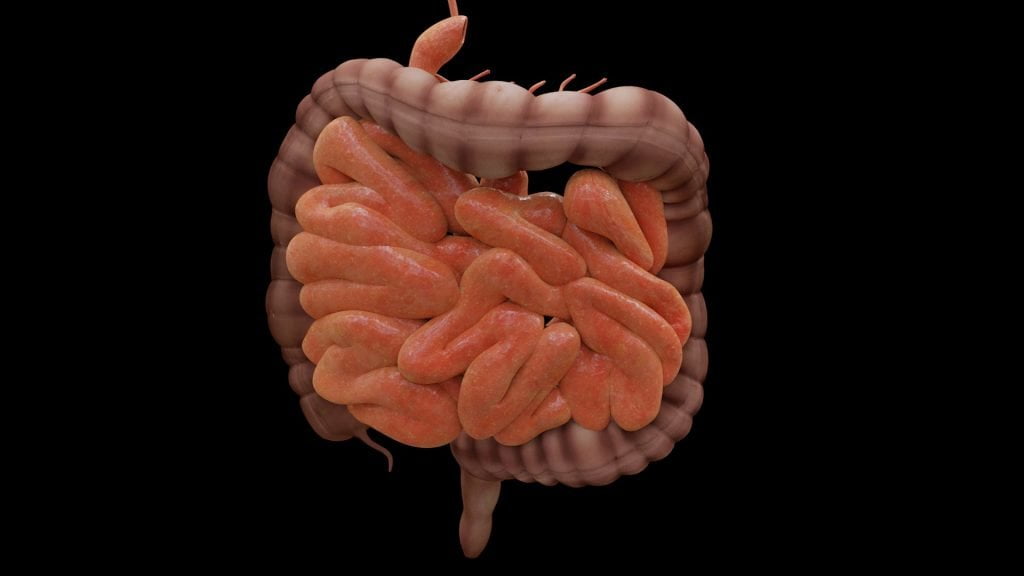Guest blog by Designs for Sport
Glutamine is the most abundant amino acid in the body with critical roles in human health. It acts as an intermediary in energy metabolism and is a substrate for the synthesis of glutathione, neurotransmitters, and nucleotide bases. Although glutamine is classically described as a nonessential amino acid, recent observations suggest that it may be “conditionally essential” during illness. Intestinal, immune, and renal cells utilize substantial amounts of glutamine, so levels are often reduced during illness.
Glutamine is especially important in intestinal health. Studies indicate that the small intestine absorbs one-fourth of plasma glutamine that passes through the organ. In the gastrointestinal tract, glutamine works to maintain intestinal barrier function, modulate inflammation and apoptosis, and regulate stress responses. Studies show that glutamine is necessary for intestinal cell proliferation through the activation of multiple mitogen-activated protein kinases (MAPKs) that influence cell differentiation and other cellular functions. Glutamine also enhances the effects of growth factors, such as epidermal growth factor (EGF) and insulin-like growth factor-1 (IGF-1).
In an animal study, a glutamine-enriched diet significantly enhanced IGF-1–mediated DNA and protein synthesis in the presence of short bowel syndrome. In addition, glutamine plays a role in the modulation of certain proteins related to tight junctions, which are critical to intestinal integrity.
Research indicates that lifestyle interventions and treatment with nutrient supplementation may support intestinal health in the presence of gastrointestinal conditions such as ulcerative colitis (UC). A recent animal study investigated the efficacy of glutamine supplementation, along with physical exercise, in the presence of UC. Unintended weight loss is a characteristic problem in UC, and supplementation with glutamine in this study prevented body weight loss. The proposed reason for this is that glutamine participates in the immune defense of the intestinal mucosal barrier and aids in the formation of immunoglobulins, particularly immunoglobulin A. Histological changes were also observed. Supplementation with glutamine was shown to slow hemorrhagic damage and severity of macroscopic damage. Additionally, pro-inflammatory cytokines, such as interleukin-6 and tumor necrosis factor-alpha were attenuated in the presence of glutamine supplementation. Of note, the results of this animal study indicate that moderate exercise may have beneficial effects on colonic mucosa similar to those of glutamine.
In the presence of catabolic conditions, such as infection, cancer, sepsis, surgery, and trauma, endogenous glutamine may not meet the body’s demands. Glutamine has a role in inflammation modulation, tight junction support, intestinal cell proliferation, and cellular metabolic functions throughout the body. Supplementation with glutamine may support many critical functions within the human body, including the health of the intestinal mucosa.

